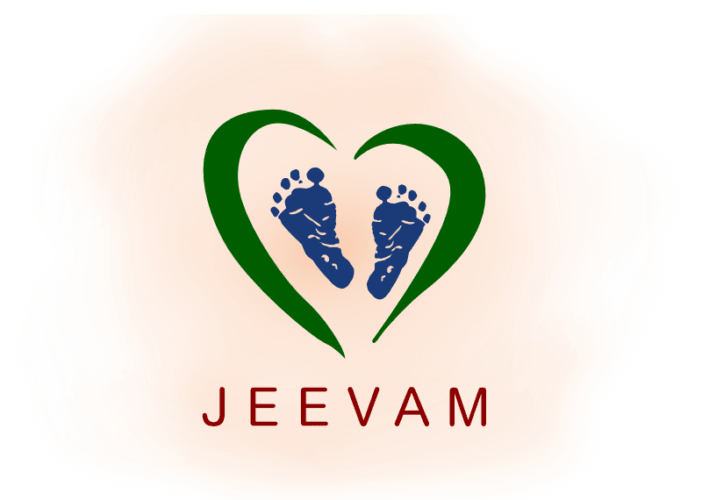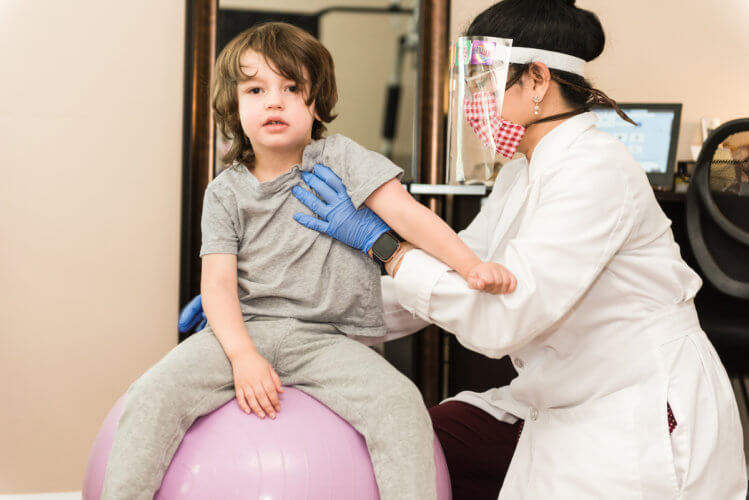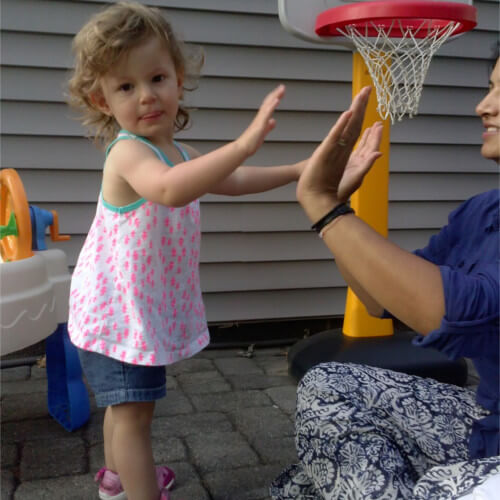Does your baby look away when you call his/her name? This could be a sign of Autism Spectrum Disorder.
Your house seems filled with the joy of a new arrival. A new baby! How exciting! You can’t wait to talk to him/her. Babies typically make eye contact when they are 4 months of age, and at close proximity, they even reciprocate by cooing to your coochie-Koos. This is the first sign of socializing, bonding with the parent and caregiver. By 6-9 months a baby will understand a familiar sound is directed to him or her, and usually masters turning its head towards his/her name call by 9-12 months. Is it a concern if your baby didn’t smile at you making funny faces, didn’t coo back, didn’t turn head when you called his/her name? Does he have Autism Spectrum Disorder (ASD)?
Well, hold your horses…these are just the windows to see more into signs and symptoms in detail. Now, do NOT go overnight net surfing on signs of ASD, and find the sign that is not even there.
It’s definitely a minor concern, which can wait till the baby’s next pediatrician visit for a well-baby check-up. Let your pediatrician guide you if your baby needs Early Intervention (EI), if you are in doubt then find out more by looking at your state’s early intervention program.
Let the licensed and skilled professional diagnose your child by meticulously assessing & thoroughly evaluating all areas of the developmental milestones.
Ok, s/he is diagnosed as being in the spectrum! NO BIG DEAL! Not yours or anyone’s fault, at all! Your baby has exactly the same number of brain cells(neurons) as others, however, the nerve connecting (Neural) pathways for some reason are not joining the desired neurons.
So, What is Autism?
Let’s think about it this way: suppose you need to communicate with your friend using a flashlight through a jungle. In a jungle where typically trees are planted in a straight line with evenly spaced rows then light can easily peer through from one end to the other, however, if the trees are planted randomly then the light that needs to get through gets bounced back or disappears. So the plants are the neurons and light the neural pathways that constantly get created and shaped with a baby’s exposure to various experiences. With randomly planted baby plants, you know, you can grow them to become organized trees in a row with some effort, so the light can pass through.
As stated by autismspeaks.org, autism, or autism spectrum disorder (ASD), refers to “a broad range of conditions characterized by challenges with social skills, repetitive behaviors, speech and nonverbal communication.”
April 2nd, 2021 is World Autism Awareness Day, and I thought this month it would only be appropriate to bring attention to a condition that many people are aware of, but may not fully understand.
According to a 2016 Harvard published research paper, “almost all genetic risk factors for autism spectrum disorders (ASDs) can be found in the general population.” Not everyone has an autism spectrum disorder, however, the condition presents itself in varying levels and ways in different individuals. To some extent, I believe we are all on the autism spectrum! Autism is not something to be afraid of, or embarrassed by. It is not a disease or an illness.
Individuals with ASD simply think and perceive things differently than you or I might.
Being different is actually quite genius!
Signs and symptoms of autism:
It’s very typical for children on the spectrum to have sensory processing disorder, and/or sensory integration dysfunction. This means they may express discomfort, confusion, or alarm when presented with various sounds, sights, tastes, smells, or textures. If your child struggles with sensory processing issues, Jeevam Therapy can help him/her.
Common symptoms of sensory sensitivities/sensory processing disorders are:
- Inability to respond when their name is being called.
- Making brief and quick eye contact during conversations.
- Pulling away when you reach out to touch or hug them
- Hyper or Hypo Sensitivity to specific smells,touch, sounds etc.
- Hypersensitivity to certain fabrics or textures of clothing (for example, not being able to wear jeans or a polyester jacket)
- Clumsiness, such as running into corners or dropping objects
- Difficulty calming themselves down
- Hypersensitivity to crowds or loud sounds
Pediatric therapy can help a child on the autism spectrum to further develop many of the skills required to lead a more comfortable life. This type of therapy focuses on refining sensory and neuromotor skills to help children become more functional and independent.
If you notice any of these symptoms, know that your child just may need a little bit more care and attention as they develop and socially progress. A therapist can guide you on this journey, so don’t be afraid to reach out to us at Jeevam Therapy with questions!
How can therapy help children with autism?
So do you remember the example I gave earlier?
Therapy can help align those baby trees (neural cells make meaningful connections with each other) so the flashlight can cross through the jungle eventually. But routine and repetition are the key!
If you suspect that your child has autism, you don’t need to stress or feel as if it’s all on you to teach them how to best interact with the world around them. Jeevam therapy is here to help you.
Because children on the autism spectrum can sometimes become increasingly uncomfortable when faced with unfamiliar places, situations and people, it is not uncommon for them to have pediatric behavioral, physical, occupational, or speech therapy for their various social language and sensory needs.
For example, your child may have trouble with understanding what words they should say or what tone of voice they should use, as well as making eye contact, reading the facial expressions and body language of others, and/or regulating their own facial expressions and body language.
The focus of pediatric therapy for children with autism is to use interactive activities to engage their sensory inputs in a way that challenges and regulates their responses. Over time, these practices will improve their ability to process sounds, smells, sights, and feelings in an easier, more productive way.
The truth about being on the autism spectrum
If your child has been diagnosed with autism, know that it’s a very common condition, and you are certainly not alone if you feel confused or worried about their overall wellness.
First and foremost, understand that your child is no less “complete” than any of their peers who are not on the spectrum. Although adjustments may need to be made for them to achieve certain goals, it’s still extremely likely that your child can, and will, lead an independent, productive, and happy life! Here is a link to see the first ever Popcorn shop built by a relentless parent to help his son with autism get a job.
In fact, there are dozens of famous individuals who are/were on the spectrum and still made major contributions to society with their outstanding intellect and expertise, such as:
- Lewis Carroll – author of “Alice in Wonderland”
- Steve Jobs – Former CEO of Apple
- Bill Gates – Co-founder of the Microsoft Corporation
- Sir Isaac Newton – Mathematician, Astronomer, & Physicist
- Wolfgang Amadeus Mozart – Classical Composer
- Thomas Alva Edison – Inventor of electricity and light bulb
- Albert Einstein – Scientist & Mathematician
- Bobby Fischer – Chess Grandmaster
- Tim Burton – director of various popular films, including “Edward Scissorhands” and the 2005 rendition of “Charlie and the Chocolate Factory”
I bet you recognize at least one of these names, but how many of them did you realize were/are on the autism spectrum?
This is because being on the autism spectrum did not define them or their work. Regardless of where each of these individuals fell on the spectrum, it simply enhanced who they were and played a role in what they created for people to enjoy.
Call Jeevam Therapy today
I understand how important it is to you as a parent to make sure your child is able to experience a happy, healthy, active childhood. We’re more than happy to help! Knowing what you know now about autism, don’t hesitate to contact me in (Edison and Paramus) to learn more about Autism Spectrum Disorder and to schedule an assessment for your child. Our clinic is 100% committed to meeting each of our patients unique needs with the highest levels of care. and how we can help your child to learn & grow happily and adapt naturally to the world around them.
Tags: healthy tips, pediatric, parent tips, tips, health, wellness, therapy




